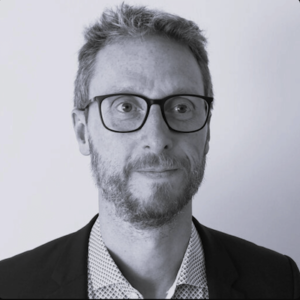 Tom Coenye is a distinguished professor, speaker, and researcher in the field of microbiology, with a particular focus on bacterial biofilms. He currently holds the position of Full Professor at the Laboratory of Pharmaceutical Microbiology, Faculty of Pharmaceutical Sciences, Ghent University, Belgium.
Tom Coenye is a distinguished professor, speaker, and researcher in the field of microbiology, with a particular focus on bacterial biofilms. He currently holds the position of Full Professor at the Laboratory of Pharmaceutical Microbiology, Faculty of Pharmaceutical Sciences, Ghent University, Belgium.
Academics
Professor Coenye’s academic journey began at Ghent University, where he obtained his Master’s degree in Biotechnology in 1997. He then pursued his doctoral studies at the same institution, earning his Ph.D. in 2002 under the supervision of Prof. Peter Vandamme. His doctoral research focused on the taxonomy of bacteria belonging to the Burkholderia cepacia complex.
Following his Ph.D., Coenye embarked on a postdoctoral fellowship at the University of Iowa, USA, where he worked under the guidance of Prof. Tiffany Benson. This experience broadened his research horizons and laid the foundation for his future work on bacterial biofilms.Upon returning to Ghent University in 2005, Coenye established himself as a leading researcher in the field of biofilms.
Career
His work has significantly contributed to our understanding of biofilm formation, antimicrobial resistance in biofilms, and the development of novel strategies to combat biofilm-related infections. Professor Coenye’s research portfolio is extensive and impactful.
He is the coordinator of the Ghent University Biofilm Research Group, which brings together researchers from various disciplines to study biofilms. He also serves as the chairman of the ESCMID Study Group on Biofilms (ESGB), further cementing his status as a leading figure in the biofilm research community.Professor Coenye’s expertise is widely recognized, making him a sought-after speaker at international conferences and symposia.
His position as a Full Professor at a renowned institution and his leadership roles in international research groups attest to the high regard in which he is held by his peers. Tom Coenye’s work extends beyond pure research. He is actively involved in translating scientific findings into practical applications, particularly in the development of new strategies to combat biofilm-related infections. His research group collaborates with industry partners to develop novel antimicrobial and anti-biofilm compounds, demonstrating the real-world impact of his work.
Publications
He has authored or co-authored over 300 peer-reviewed papers in international scientific journals, many of which have been published in high-impact journals in the fields of microbiology and infectious diseases. His work has been cited over 20,000 times, reflecting the significant influence of his research on the scientific community.
Some of Coenye’s notable publications include reviews on the role of biofilm formation in pathogenesis and antimicrobial resistance, as well as reports on the future directions of biofilm research. These publications demonstrate his expertise in biofilm research and his role in shaping the future direction of the field.In addition to his research, Coenye has made substantial contributions to academic leadership and scientific collaboration.
Public Speaking
He has been invited as a guest speaker to present his work at numerous prestigious events, including the EuroBiofilms conference, where he was featured alongside other leading global experts in biofilm research. Throughout his career, Coenye has received several awards and honors for his contributions to microbiology and shared his insights with healthcare professionals at conferences and University lectures.
Teaching
In addition to his research and speaking engagements, Professor Coenye is committed to education and mentorship. He supervises doctoral students and postdoctoral researchers, helping to shape the next generation of microbiologists and biofilm experts.
His teaching responsibilities at Ghent University include courses on pharmaceutical microbiology and biotechnology, where he shares his extensive knowledge and experience with students.Professor Coenye’s influence extends beyond academia.
He has been involved in various scientific advisory roles, contributing his expertise to guide policy and research directions in both public and private sectors. His work has implications for healthcare, particularly in addressing the challenges posed by biofilm-associated infections in medical settings.
